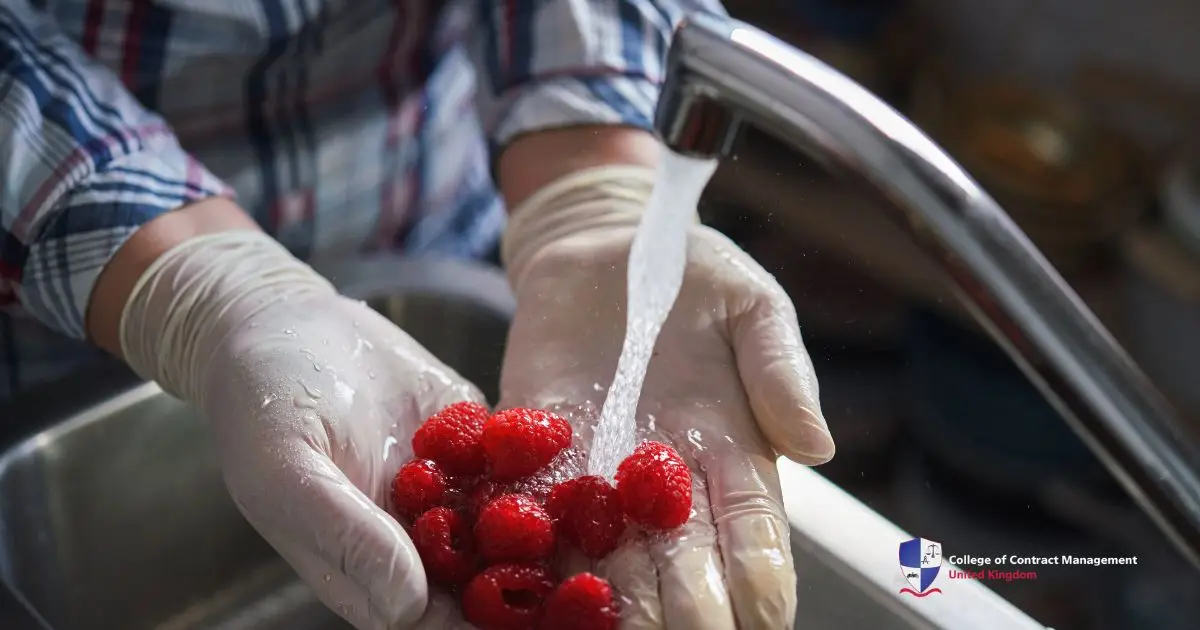Top Food Hygiene Course Certifications to Boost Your Career
Acquiring knowledge about various food hygiene courses and career paths is crucial for anyone in the food industry, especially those in the catering industry. Understanding these courses and their potential career benefits can provide a significant boost to your professional journey.
Categories of Food Hygiene Courses
Level 1 Food Safety
Basic food hygiene concepts are covered in this introductory course. It is vital for everyone working in low-risk food manufacturing, focusing on keeping workspaces tidy and avoiding contamination.
Level 2 Hygiene
This training is essential for team members in catering areas such as cafés, restaurants, hotels, and fast-food outlets. It provides crucial knowledge for those operating in these environments.
Level 3 Supervising Food Safety
Designed for managers or supervisors, this course ensures high standards of food safety in businesses. It is crucial for those in charge of managing food hygiene procedures and ensuring team compliance.
Content of the Courses
Food hygiene courses typically cover regulations, the roles of agencies like the Food Standards Agency, and personal cleanliness habits. Key topics include:
- Proper handwashing techniques
- Use of safety equipment
- Awareness of bacterial contamination risks
- Food handling, storage, and risk identification
Career Growth Opportunities
Entrepreneurship and Business Ownership
Combining food hygiene education with entrepreneurship training can benefit those looking to start food businesses like bakeries, food trucks, or restaurants. Courses like the College of Contract Management’s HND in Business Entrepreneurship and Small Business Management provide a strong foundation.
Career Advancement in Culinary Arts
Food safety and hygiene certifications can launch careers in professional cooking. They open doors to jobs in upscale cafés or restaurants.
Food Packing and Factory Jobs
Completing a food hygiene course provides opportunities in food packing or manufacturing settings, where handling food safely is essential.
Hotel Industry
Food hygiene knowledge benefits hotel workers, including wait staff, chefs, and room service employees. It helps maintain hygiene standards across various hospitality roles.
Food Importing
Understanding safety regulations for imported foods is crucial for those in the food import industry.
Schools and Hospitals
In educational and healthcare settings, food hygiene knowledge ensures safe food handling, crucial in environments where individuals are more susceptible to allergies or foodborne illnesses.
Importance of Food Hygiene Courses
Proper training in food hygiene and safety is essential to prevent food-related dangers. Adhering to regulations for storing food, maintaining cleanliness, and following expiration dates helps prevent food poisoning, protecting both individuals and business reputations. Additionally, food hygiene courses contribute to reducing food waste and minimising costs for businesses.
Recent Trends in Food Safety Regulation
Enhanced Traceability Systems
One of the recent trends in food safety is the implementation of enhanced traceability systems. These systems allow for better tracking of food products from farm to table, ensuring any contamination can be quickly identified and addressed. This trend is crucial for food importers and those involved in the supply chain.
Stringent Allergen Management
With the rise in food allergies, regulatory bodies have introduced stricter guidelines for allergen management. This includes clear labelling, separate storage, and preparation areas to avoid cross-contamination. Understanding these regulations is vital for those in food manufacturing and catering.
Sustainable Practices and Food Safety
Sustainability is becoming a significant focus in food safety regulations. This includes reducing food waste, using eco-friendly packaging, and ensuring sustainable sourcing of ingredients. Professionals in the food industry must stay updated on these practices to remain compliant.
Digital Food Safety Tools
The adoption of digital tools for food safety management is on the rise. These tools help streamline processes, maintain records, and ensure compliance with regulations. Knowledge of these tools can be a valuable asset for those managing food safety in businesses.
Global Harmonisation of Standards
There is a growing trend towards harmonising food safety standards globally. This makes it easier for food businesses to operate internationally but also requires a thorough understanding of various international regulations.
Key Takeaway
Food hygiene courses offer a comprehensive curriculum that leads to various career pathways. These classes emphasise professional advancement and skill improvement opportunities. Educational establishments like the College of Contract Management aim to equip individuals with the skills necessary to pursue diverse professional paths and capitalise on industry opportunities.


